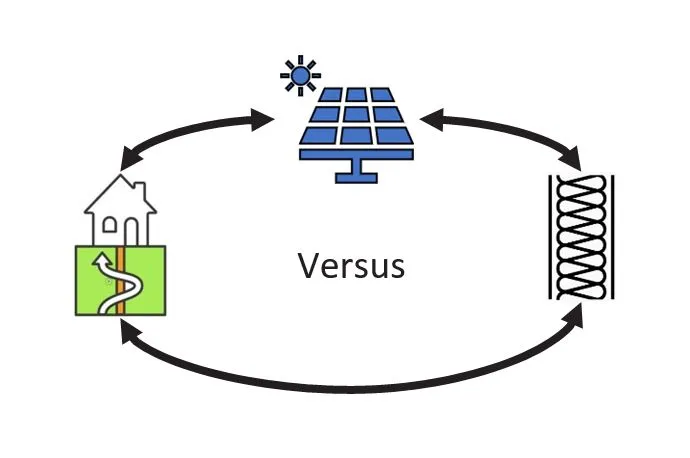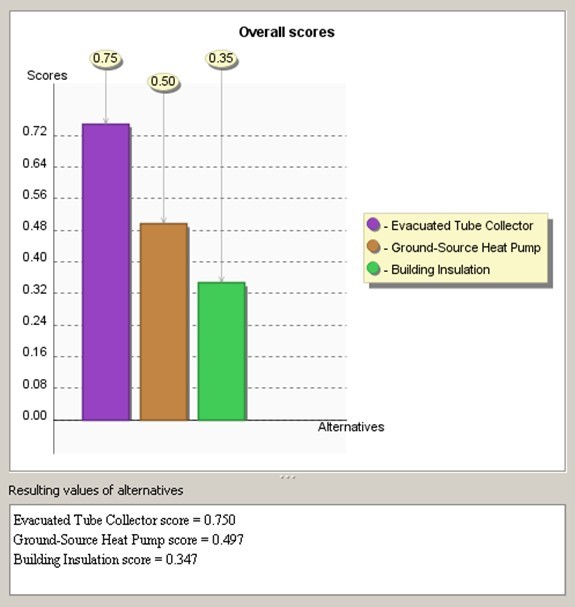
Gasthaus Göscheneralp, a family-run hotel/restaurant business in central Switzerland, was analysed as a testbed for the application of improved heating system technologies. The aim of this project is to develop a comparative analysis of various heating systems as a possible climate-neutral solution to reduce electricity consumption and cut energy costs.
After evaluating the current situation of the Gasthaus Göscheneralp, three technologies were considered as possible heating alternatives: a ground-sourced heat pump, an evacuated tube collector solar system and improved building insulation. These technologies were evaluated using the first level criteria of economic, environmental, and social sustainability. Then, the second level criteria of net present value (economic), global warming potential (environmental) and aesthetics and comfort (social) were established as final indicator values. The technologies and the established criteria were evaluated using the techniques of a cost/benefit analysis, a life cycle assessment, and a multi-criteria decision analysis.
Given the results of these evaluation techniques, it is recommended to implement the evacuated tube collector solar system. This technology scored highest in environmental and economic sustainability categories and second in the social category. Additional improvement could be made with stepwise measures to increase the thermal resistance of the building envelope with improved building insulation. It is also notable that although the ground source heat pump is the most cost-effective solution during the operating phase, it is not recommended due to the current energy tariffs of the Gasthaus Göscheneralp. However, if energy prices increase significantly, the low energy demand of the ground- sourced heat pump could prove to be a feasible option.
